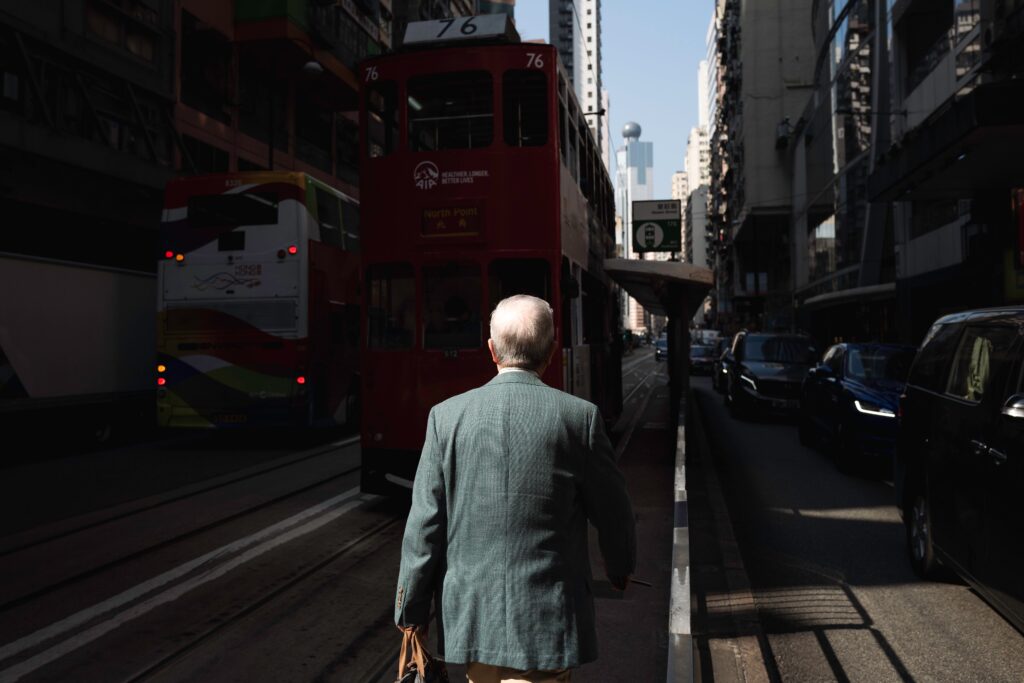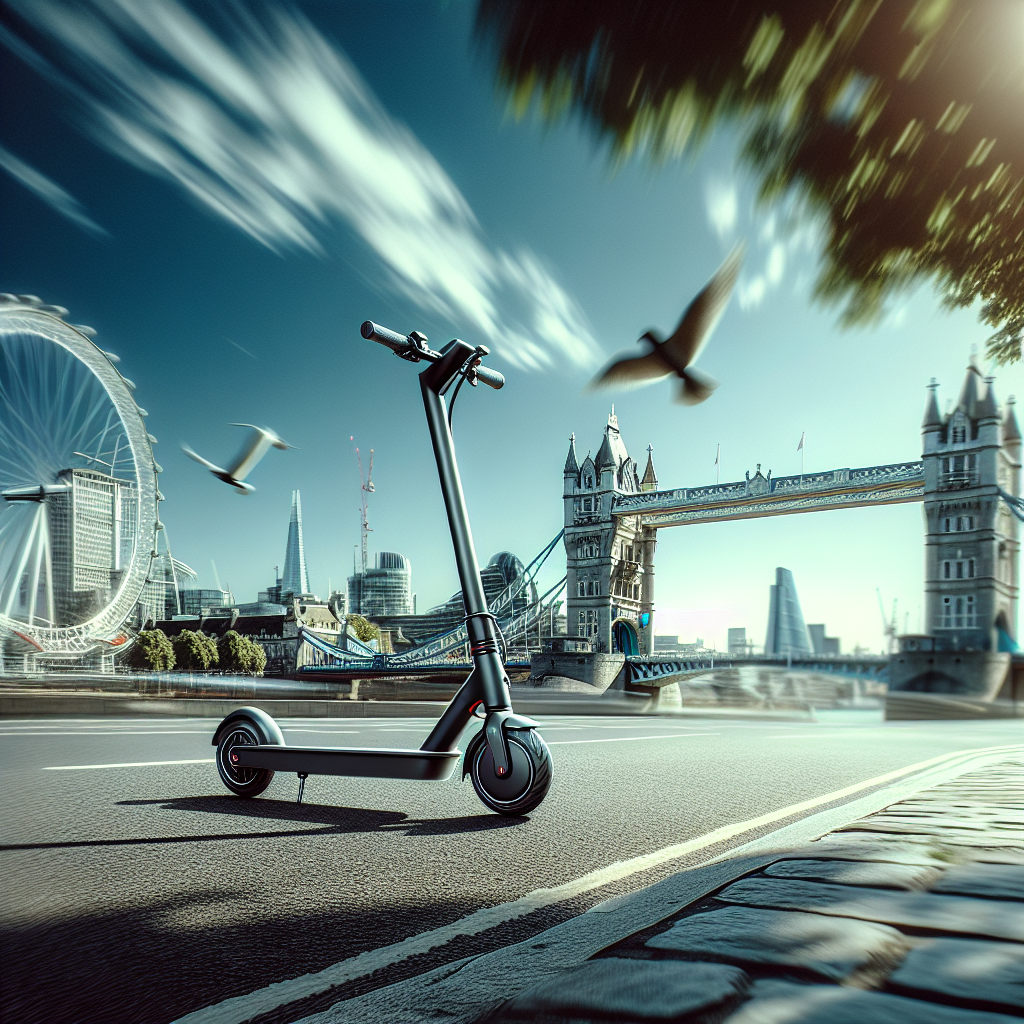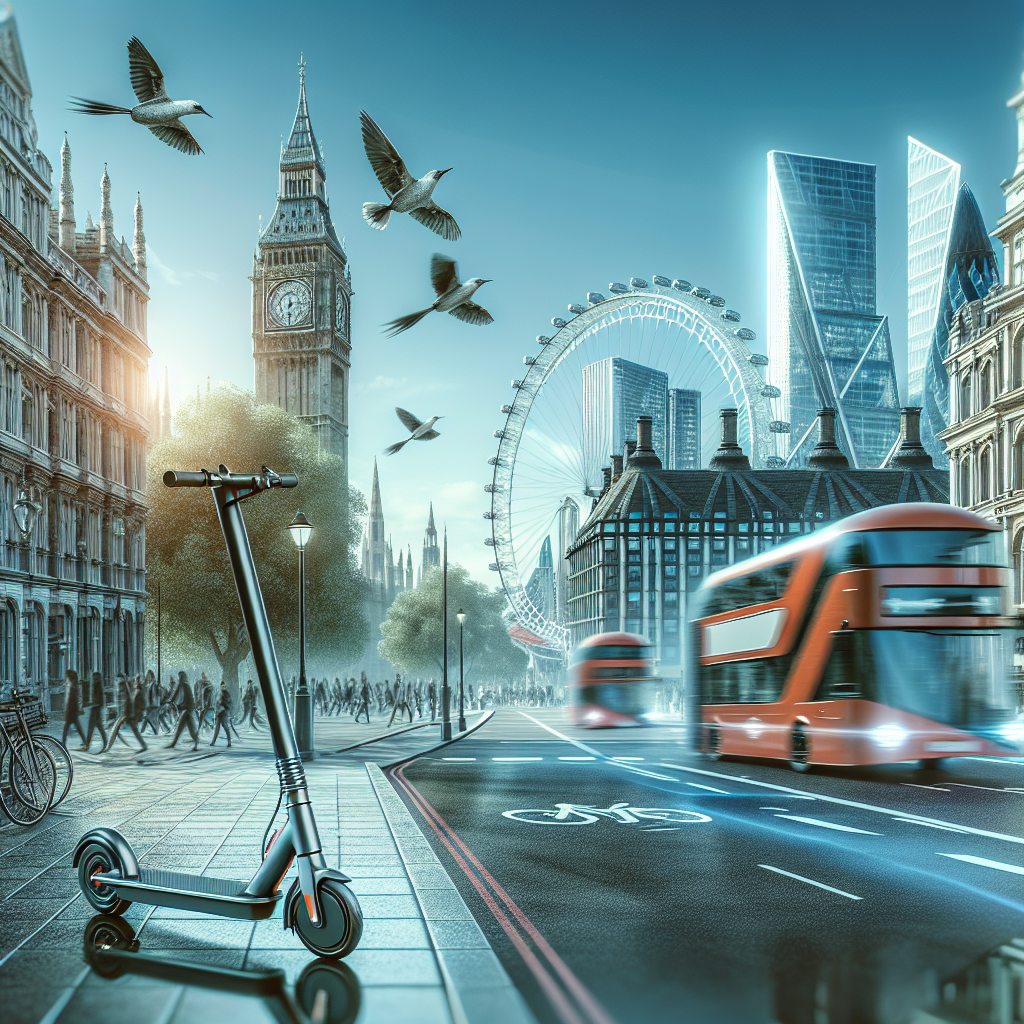Have you ever wondered about the legality of electric scooters in the bustling streets of London? Well, you’re not alone! With the rise of this eco-friendly mode of transportation, it’s crucial to understand the rules and regulations surrounding electric scooters in the city. In this article, we will explore the current status of electric scooters in London and shed light on whether you can confidently zip through the city on one of these sleek rides without breaking any laws. So, fasten your seatbelts and get ready to navigate the ins and outs of electric scooter legality in London!
Benefits of Electric Scooters
Eco-friendly alternative to traditional transportation
Electric scooters are an excellent option for those looking to reduce their carbon footprint and contribute to a more sustainable environment. Unlike traditional gas-powered vehicles, electric scooters produce zero emissions, helping to improve air quality and mitigate the effects of climate change. By choosing to ride an electric scooter instead of driving a car or taking public transportation, you can significantly reduce your carbon emissions and make a positive impact on the planet.
Cost-effective mode of transport
Electric scooters offer a cost-effective mode of transportation compared to owning and maintaining a car or even relying on public transportation. The initial cost of purchasing an electric scooter is relatively lower than buying a car, and the ongoing expenses, such as fuel and parking fees, are significantly reduced. Additionally, electric scooters require minimal maintenance and have fewer parts that can break or wear out, further reducing long-term costs. By opting for an electric scooter, you can save money while still enjoying the benefits of personal transportation.
Convenience and accessibility for short trips
Electric scooters are particularly convenient for short trips, such as commuting to work or running errands around the city. With their compact size and maneuverability, electric scooters allow you to navigate through crowded streets and find parking spaces more easily compared to cars. They also eliminate the need to rely on public transportation schedules and can provide a faster and more efficient way to reach your destination. Whether you need to travel a few blocks or a few miles, an electric scooter can be a convenient and accessible mode of transportation.
Reduced traffic congestion
One of the significant advantages of electric scooters is their ability to reduce traffic congestion in busy urban areas. By choosing electric scooters instead of cars, more people can travel on the road using less space. Electric scooters take up minimal space on the road and can easily maneuver through traffic, reducing the overall number of vehicles and alleviating congestion. This, in turn, leads to smoother traffic flow, shorter commute times, and a more efficient transportation system for everyone.
Health benefits of active commuting
Electric scooters provide an opportunity for active commuting, which has various health benefits for the rider. Riding an electric scooter involves physical activity, as individuals need to maintain balance, steer, and control the scooter’s speed. This promotes daily exercise and can contribute to improved cardiovascular health, increased muscle strength, and enhanced overall fitness. Additionally, the active nature of riding an electric scooter can contribute to stress reduction and improved mental well-being. Choosing an electric scooter for your daily commute allows you to reap the health benefits of active transportation while enjoying the convenience and efficiency it offers.
Current Regulations on Electric Scooters in London
Electric scooters are illegal for use on public roads
As of the current regulations in London, electric scooters, also known as e-scooters, are illegal to use on public roads. This means that individuals caught riding electric scooters on public roads can face penalties and fines. The prohibition is due to the classification of electric scooters as Personal Light Electric Vehicles (PLEVs), which are not permitted on public roads according to the Traffic Act 1988 and Road Traffic Regulation Act 1984. It is important to note that this restriction applies to both privately-owned electric scooters and rental e-scooters.
Classification of electric scooters as Personal Light Electric Vehicles (PLEVs)
In London, electric scooters are classified as Personal Light Electric Vehicles (PLEVs), along with other similar mobility devices like Segways and hoverboards. PLEVs are considered motor vehicles and are subject to the same regulations as cars and motorcycles. This classification means that electric scooters must meet specific safety standards and requirements to be legally operated on public roads. Currently, most electric scooters on the market do not meet these standards, which is why their use remains illegal in London.
Traffic Act 1988 and Road Traffic Regulation Act 1984
The Traffic Act 1988 and Road Traffic Regulation Act 1984 outline the legislation regarding the use of various vehicles on public roads in London. These acts define the different types of vehicles, specify their legal requirements, and provide guidelines for enforcement and penalties. In the case of electric scooters, these acts prohibit their use on public roads due to safety concerns and the lack of compliance with safety standards. It is essential for scooter riders to familiarize themselves with these acts to ensure they are aware of the legal restrictions and potential consequences.
Penalties and fines for illegal use
Individuals caught riding electric scooters on public roads in London can face penalties and fines. The specific penalties may vary depending on the severity of the offense and any previous infractions. Riding an electric scooter illegally can result in fines, points on your driving license (if you possess one), and even prosecution. It is crucial to adhere to the current regulations and wait for the legalization or participation in rental e-scooter trials to avoid any legal consequences.
Exceptions for rental e-scooter trials
Despite the general prohibition on electric scooters, rental e-scooter trials have been introduced in some areas of London. These trials allow individuals to rent and ride e-scooters from authorized operators within designated zones. The rental e-scooters used in these trials meet the required safety standards and are subject to specific regulations outlined by the participating boroughs. It is important to note that rental e-scooter trials are limited to specific areas and operators, and riding privately-owned electric scooters outside of these trials remains illegal.

Public Perception and Safety Concerns
Public opinion on e-scooters in London
Public opinion on electric scooters in London is varied. Some individuals see e-scooters as a convenient and sustainable mode of transportation that can help reduce congestion and emissions. They appreciate the ease of getting around the city and the cost-effectiveness of using electric scooters for short trips. However, others express concerns about the potential dangers and disruptions caused by e-scooters, particularly in crowded areas. Public opinion is influenced by factors such as personal experiences, perceptions of safety, and the overall attitude towards micromobility solutions.
Safety concerns for riders and pedestrians
Safety is a major concern when it comes to electric scooters, both for riders and pedestrians. Riders may face risks such as collisions with other vehicles, loss of control, or accidents caused by uneven road surfaces. Pedestrians, on the other hand, may be at risk of collisions with e-scooters if riders are not cautious or fail to observe traffic rules. The higher speeds of some electric scooters and the relatively silent motors can make them less visible and more challenging to anticipate, increasing the chances of accidents. It is crucial for riders to prioritize safety, follow traffic regulations, and be considerate of pedestrians to minimize risks.
Potential for accidents and collisions
The potential for accidents and collisions is a significant concern associated with electric scooters. As electric scooters become more prevalent on the streets of London, there is an increased risk of accidents involving e-scooters, other vehicles, and pedestrians. Factors such as inexperienced riders, reckless behavior, and the lack of designated infrastructure can contribute to these incidents. To mitigate this risk, it is essential to implement strict safety measures, educate riders and the general public about e-scooter safety, and improve infrastructure to accommodate the growing presence of electric scooters.
Helmet usage and protective gear recommendations
Wearing helmets and protective gear is crucial for the safety of electric scooter riders. Helmets can greatly reduce the risk of head injuries in the event of an accident or collision. Additionally, considering the vulnerability of riders, it is advisable to wear protective gear such as knee and elbow pads, gloves, and reflective clothing to enhance visibility. While current regulations do not require helmet usage for e-scooter riders, it is strongly recommended to prioritize personal safety and opt for appropriate protective gear when riding an electric scooter.
Enforcement of safety measures
Ensuring the enforcement of safety measures is essential to address the concerns associated with electric scooters. As electric scooters currently remain illegal for use on public roads in most of London, enforcing safety regulations can be challenging. However, dedicated efforts should be made to educate riders about safe riding practices, promote awareness among the general public, and enhance enforcement mechanisms for traffic regulations. Collaboration between law enforcement agencies, local authorities, and e-scooter operators is vital to create a safer environment for everyone on the streets of London.
Rental E-Scooter Trials in London
Introduction of rental e-scooter trials
To explore the potential of electric scooters as a mode of transportation, rental e-scooter trials have been introduced in London. These trials allow individuals to rent electric scooters from authorized operators within specific geographic areas, providing an opportunity to assess their impact on mobility, safety, and the environment. The trials aim to gather data, evaluate user feedback, and inform future e-scooter policies in the city. By participating in rental e-scooter trials, the authorities can better understand the challenges and benefits associated with e-scooter usage before considering potential legalization.
Participating boroughs and operators
Several boroughs in London have chosen to participate in the rental e-scooter trials, partnering with authorized operators to provide this service. The participating boroughs include [list participating boroughs]. Each borough has its own set of regulations and guidelines in place to ensure the safe operation of rental e-scooters within their areas. These trials provide valuable insights into the feasibility and impact of e-scooter usage, enabling authorities to make informed decisions about future regulations and potential expansion of e-scooter programs.
Conditions and requirements for riding rental e-scooters
To ride a rental e-scooter as part of the trials, specific conditions and requirements must be met by users. These may include age restrictions, possession of a valid driving license or provisional license, and compliance with safety guidelines. Users are typically required to download a specific mobile app provided by the authorized operators to locate and unlock the e-scooters. Additionally, riders are expected to follow the designated routes and operating rules outlined by the participating boroughs to ensure the safety of themselves and others on the road.
Speed limits and designated zones
Speed limits and designated zones are implemented in rental e-scooter trials to maintain order and safety. The participating boroughs define specific speed limits that riders must adhere to while operating rental e-scooters. These limits are aimed at ensuring a reasonable and safe pace within the given environment. Additionally, designated zones may be identified to regulate e-scooter usage or restrict access to certain areas for safety or logistical reasons. Users are expected to respect and comply with these speed limits and designated zones to avoid accidents and potential penalties.
Parking and docking regulations
Proper parking and docking regulations are crucial for maintaining order and accessibility during rental e-scooter trials. Participating boroughs outline clear guidelines and requirements related to parking and docking to prevent obstruction and ensure the availability of e-scooters for other users. Riders are typically encouraged to park in designated areas or approved parking spots to avoid creating hazards or inconveniences for pedestrians, other vehicles, or emergency services. By adhering to parking and docking regulations, users can contribute to smoother operations and positive public perception of rental e-scooter trials.

Future Outlook for Electric Scooters in London
Potential legalization and regulation of e-scooters
The future outlook for electric scooters in London includes the potential legalization and regulation of their use on public roads. As rental e-scooter trials provide valuable insights into their impact and feasibility, authorities can consider introducing legislation that permits the use of electric scooters beyond the trial areas. Legalization would involve defining specific regulations and safety standards for privately-owned electric scooters, allowing individuals to enjoy the benefits of e-scooters as a mode of transportation while ensuring their safe and responsible operation on public roads.
Role of government in monitoring and managing e-scooter use
The government plays a crucial role in monitoring and managing e-scooter use to ensure the safety and well-being of all road users. Alongside potential legalization, the government would be responsible for setting and enforcing regulations, overseeing compliance with safety standards, and monitoring the impact of electric scooters on transportation systems. This may involve collaborations with local authorities, law enforcement agencies, and transportation organizations. By actively managing e-scooter use, the government can promote safe and sustainable transportation options in line with the needs and aspirations of London residents.
Integration with existing transportation infrastructure
Efforts need to be made to integrate electric scooters with existing transportation infrastructure. This would involve establishing dedicated lanes or paths for electric scooters, enhancing bike lane networks, and considering their compatibility with public transportation systems. Integrating electric scooters into existing infrastructure allows for smoother and safer interactions with other road users, ensures proper access to essential facilities, and optimizes the benefits of micromobility solutions for the city as a whole.
Adoption of sustainable mobility solutions
The adoption of electric scooters demonstrates London’s commitment to sustainable mobility solutions. By embracing eco-friendly alternatives to traditional transportation, the city can reduce emissions, improve air quality, and work towards achieving its sustainable development goals. The promotion of electric scooters aligns with London’s vision of becoming a greener and more livable city, providing residents and visitors with sustainable and efficient transportation options that complement existing public transit systems.
Collaboration with e-scooter operators and technology companies
Collaboration between the government, e-scooter operators, and technology companies is essential for the successful integration and management of electric scooters in London. Partnering with reputable e-scooter operators ensures the adherence to safety standards, responsible operational practices, and effective fleet management. Technology companies can contribute by providing innovative solutions for improved rider safety, efficient infrastructure planning, and data-driven insights that inform decision-making processes. By fostering close collaboration, London can leverage the expertise and resources of various stakeholders to create a thriving and sustainable e-scooter ecosystem.
Comparative Analysis of E-Scooter Policies in Other Cities
Successful implementation of e-scooter programs abroad
Several cities around the world have successfully implemented e-scooter programs, showcasing the potential benefits and challenges associated with their usage. Cities such as [list cities] have embraced e-scooters as a sustainable mode of transportation and have experienced positive outcomes, including reduced traffic congestion, improved air quality, and enhanced first-and-last-mile connectivity. By analyzing these successful implementations, London can gain valuable insights into regulatory approaches, infrastructure requirements, and public perception to inform its own e-scooter policies.
Lessons learned from cities with legalized e-scooters
Cities that have legalized e-scooters have also learned important lessons along the way. They have encountered challenges related to rider safety, parking management, and integration with existing transportation infrastructure. By studying these cities, London can identify potential pitfalls and learn from best practices to develop a thoughtful and effective e-scooter policy. Understanding the strengths and weaknesses of different regulatory approaches allows London to tailor its own policies to suit the specific needs and characteristics of the city.
Approaches to balancing safety and accessibility
Balancing safety and accessibility is a key consideration when implementing e-scooter policies. Cities have utilized various approaches to address this balance, including implementing speed limits, requiring helmet usage, and establishing clear rules for riding and parking. By examining these approaches, London can design policies that prioritize the safety of riders and pedestrians without compromising the accessibility and convenience of e-scooters as a mode of transportation.
Impact on public transportation systems
The introduction of e-scooters can have both positive and negative impacts on existing public transportation systems. While e-scooters may provide an alternative for short trips and help reduce congestion in some areas, they can also pose challenges in terms of integration with public transit infrastructure and potential diversion of ridership. By evaluating the experiences of other cities, London can consider strategies that enhance the synergy between e-scooters and public transportation, creating a comprehensive and interconnected mobility network for residents and visitors.
Bringing international best practices to London
London can benefit greatly from the international best practices developed in cities that have successfully implemented e-scooter programs. By studying the approaches, regulations, and outcomes of these cities, London can tap into a wealth of knowledge and implement policies that have already been proven effective elsewhere. This can save time and resources, allowing London to expedite the process of future e-scooter legalization and ensure the successful integration of electric scooters into the city’s transportation landscape.

Regulatory Challenges and Considerations
Integration with existing traffic laws
Integrating electric scooters into existing traffic laws is a significant challenge that needs to be addressed for the safe operation of e-scooters in London. Adapting current regulations to accommodate the unique characteristics and potential risks associated with electric scooters requires careful consideration. Clear guidelines on speed limits, road usage, and interaction with other vehicles and pedestrians need to be established to ensure the safety of all road users.
Infrastructure requirements for e-scooter usage
The infrastructure requirements for e-scooter usage pose another challenge that needs to be addressed. Providing safe and appropriate infrastructure for electric scooters involves considerations such as dedicated lanes or paths, clear signage, adequate parking spaces, and compatibility with existing transportation networks. Integrating these requirements into the urban environment can be demanding, but doing so is crucial for the successful and sustainable operation of electric scooters in London.
Liability and insurance considerations
Liability and insurance considerations are critical factors in the regulation of electric scooters. Determining who is responsible for accidents or damages involving e-scooters can be complex. The development of clear guidelines regarding liability and insurance is necessary to protect e-scooter riders, pedestrians, and other road users. This includes requiring e-scooter operators and riders to have appropriate insurance coverage and outlining the responsibilities of each party involved in an accident or incident.
User age restrictions and licensing
User age restrictions and licensing requirements are important considerations in the regulation of electric scooters. Determining the appropriate age at which individuals can operate e-scooters is crucial to ensure the safety of riders and the public. Additionally, implementing a licensing system that ensures proper training and awareness among e-scooter riders can contribute to safer and more responsible scooter usage. Age restrictions and licensing requirements can help mitigate the potential risks associated with inexperienced or underage riders.
Public education and awareness campaigns
Public education and awareness campaigns play a vital role in ensuring the safe and responsible use of electric scooters. Informing the public about e-scooter regulations, safety guidelines, and the potential benefits and challenges of electric scooters is essential. Educating riders, pedestrians, and drivers about their responsibilities and rights helps create a culture of safety and respect on the roads. By investing in public education and awareness campaigns, London can foster an environment where the benefits of electric scooters are maximized, and risks are minimized.
Advocacy for Legalizing Electric Scooters
Benefits of legalizing e-scooters for the city
Advocates for the legalization of electric scooters in London emphasize the numerous benefits they bring to the city. Legalizing e-scooters would allow individuals to enjoy the convenience, affordability, and sustainability of this mode of transportation. It would reduce reliance on cars and public transportation, contribute to reduced traffic congestion and emissions, and promote active commuting and healthier lifestyles. Additionally, legalizing e-scooters would drive innovation and economic growth, attracting investment and creating new job opportunities in the electric scooter industry.
Support from environmental and urban planning organizations
The call for legalizing electric scooters in London is supported by various environmental and urban planning organizations. These organizations recognize the potential of electric scooters to contribute to a greener and more sustainable city. They advocate for the integration of e-scooters into the transportation system as part of a comprehensive strategy to combat climate change and improve air quality. By working in partnership with these organizations, London can make informed decisions that align with its sustainability goals and benefit the health and well-being of its residents.
Promoting micromobility for sustainable transportation
Advocates for the legalization of electric scooters emphasize the importance of promoting micromobility solutions for sustainable transportation. Micromobility, which includes electric scooters, bicycles, and other small-scale transport options, offers a way to reduce congestion and emissions while enhancing the accessibility and convenience of transportation. Legalizing electric scooters would support the broader goal of creating a balanced and sustainable transportation system that meets the diverse needs of London’s population.
Economic opportunities and job creation
Legalizing electric scooters can stimulate economic opportunities and job creation in London. With the emergence of the e-scooter industry, there is potential for the creation of new jobs in areas such as operations, maintenance, customer support, and charging infrastructure management. It also opens avenues for local entrepreneurship and innovation, as businesses can develop applications, accessories, and services tailored to the needs of e-scooter users. Embracing electric scooters as a legalized mode of transportation can support economic growth and contribute to a thriving green economy.
Engagement with local communities
Advocates emphasize the importance of engaging with local communities to ensure their voices are heard throughout the process of legalizing electric scooters. Involving community members in decision-making and implementation processes can address concerns, build trust, and promote a sense of ownership and collaboration. By actively engaging with residents, community organizations, and other stakeholders, London can develop a comprehensive e-scooter policy that reflects the needs and aspirations of its diverse communities.

Potential Solutions for Regulating E-Scooters
Developing comprehensive e-scooter regulations
Developing comprehensive e-scooter regulations is a key step in effectively regulating their use in London. These regulations should cover various aspects, including safety standards, rider conduct, parking guidelines, and enforcement measures. Clear and enforceable rules provide clarity and help ensure the safe and responsible operation of electric scooters on public roads. Working closely with stakeholders, including e-scooter operators, technology companies, and transportation experts, can facilitate the development of comprehensive regulations that address the unique considerations of electric scooters.
Creating designated e-scooter lanes and paths
Creating designated lanes and paths for electric scooters can enhance safety and promote the efficient flow of traffic. Separating e-scooter riders from other vehicles and pedestrians can reduce the risk of accidents and collisions. Designated lanes can provide riders with a dedicated space to travel at a controlled speed, while also giving them priority at intersections and other critical points. Establishing such infrastructure allows for safer and more predictable electric scooter operations and encourages more individuals to choose electric scooters as a mode of transportation.
Implementing technology for speed control and geofencing
Technological solutions can play a crucial role in regulating electric scooters. Implementing speed control mechanisms and geofencing technology can ensure that e-scooters are operated within safe limits and designated areas. Speed control can limit the maximum speed of e-scooters, promoting responsible riding behavior and reducing the risk of accidents. Geofencing technology can define virtual boundaries, allowing authorities to enforce regulations and restrict access to certain areas where e-scooters are not permitted or deemed unsafe.
Establishing licensing and registration systems
Licensing and registration systems can contribute to the regulation and accountability of electric scooters. Requiring riders to obtain licenses or permits ensures that they are aware of the rules and responsibilities associated with e-scooter operation. Registration systems help authorities track and monitor the number of e-scooters in circulation, ensuring compliance with safety standards and identifying potential issues. By implementing licensing and registration systems, London can improve the overall safety and management of electric scooters in the city.
Collaboration between government, industry, and advocacy groups
Collaboration between the government, e-scooter industry, and advocacy groups is essential for effective regulation. Working together allows for the exchange of knowledge, expertise, and resources, leading to comprehensive and balanced e-scooter policies. Government agencies can collaborate with e-scooter operators, sharing insights and data to inform decision-making and address operational challenges. Advocacy groups can contribute by providing feedback from the user perspective and advocating for the interests of riders and the community. Together, these stakeholders can create a regulatory framework that supports the responsible and sustainable integration of electric scooters into London’s transportation landscape.
Conclusion
The current regulations on electric scooters in London prohibit their use on public roads, classifying them as Personal Light Electric Vehicles (PLEVs). However, rental e-scooter trials have been introduced in some boroughs as a step towards potential legalization. These trials provide valuable insights into the impact and feasibility of electric scooters in the city. As London continues to evaluate and consider future e-scooter policies, it is crucial to balance safety, accessibility, and environmental concerns. Learning from successful implementations abroad and collaborating with stakeholders can ensure that London develops a comprehensive regulatory framework that promotes sustainable urban transportation and benefits its residents, visitors, and the environment. Electric scooters have the potential to play a vital role in London’s transportation system, offering a convenient, eco-friendly, and cost-effective mode of transport for short trips in the city. With proper regulations and infrastructure, electric scooters can contribute to a greener and more efficient London. By embracing the opportunities presented by e-scooters and addressing the challenges they may pose, London can create a vibrant and sustainable micromobility ecosystem.


